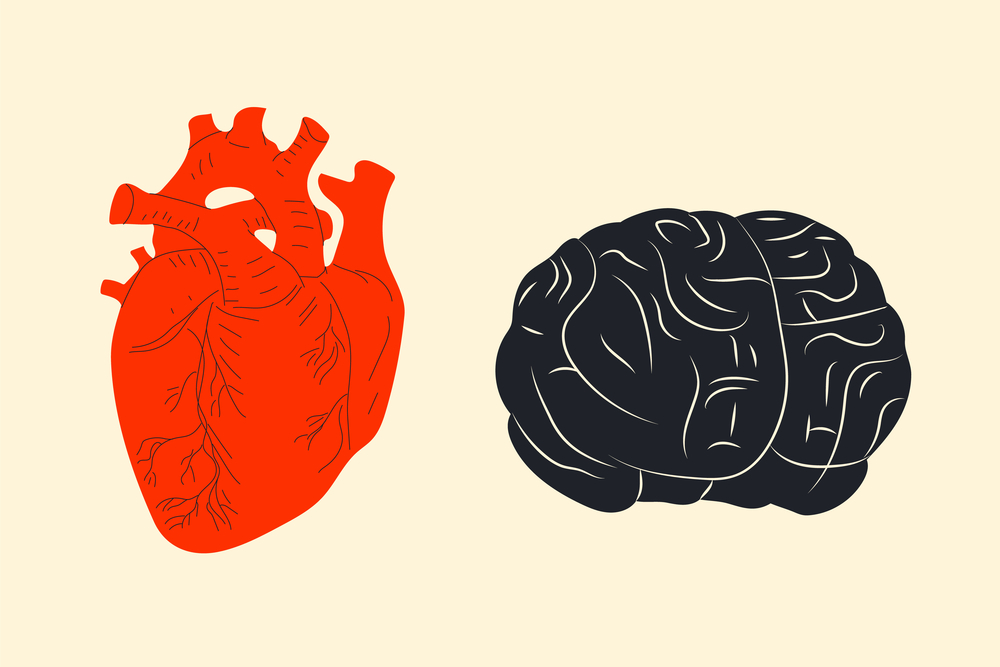In a new article in the Review of General Psychology, anthropologist Jie Yang of Simon Fraser University argues that modern psychology’s reliance on the “psyche” leaves out something essential. Instead of focusing on the brain or mind as the seat of distress, her research turns to the indigenous concepts of xin in Chinese and kokoro in Japanese, both usually translated as “heart” or “heart-mind.”
“Our shared interest lies in the potential for heart, rather than the psyche, to be the ground for developing a new template of psychological care,” they write.
She describes this heart-based template as both “affective, that is, embodied, sensitive to intensities of feeling emanating from heart-related distress” and “aesthetic, meaning artful and intuitive, because xin, the Chinese term for the heart, which is also the origin of kokoro in Japan, is both body and mind.”
Concepts of xin and kokoro, they note, “suggest an interdependent self, rather than a bounded, individual self, such as the one we associate with tenets of Euro-American psychology and the psyche.”
The study documents how these traditions frame the heart not only as a physical organ but as the ground of cognition, emotion, virtue, and social life. Yang and collaborators describe this approach as “aesthetic attunement”: an artful, embodied way of aligning the self with others, society, and the cosmos. They argue that heart-based care provides healing potential where psychiatric categories like depression and anxiety fall short.
















“Merchants of Light — The Consciousness That Is Changing The World”, Anthony Chene Productions
“Samadhi Movie, 2018 – Part 2 (It’s Not What You Think)”, AwakenTheWorldFilm
Report comment
Thank you for your work. This article couldn’t be more relevant to the current landscape.
Report comment
I’m all for more heart in the delivery of professional psychological help! But I think the far bigger problem is the magnitude of which what comprises psychological help today, is utterly mindless. To regard “psyche” as the mind or brain as the seat of distress-as this article suggest, it’s implied that the whole of the material world, or that a person’s personal unconscious, or collective unconscious energies, or the vast networks of our relationships, have no role in the condition of one’s psyche. Now… that there is a level of “expertise” I hope to never know.
As someone who has read far too many psychology books, I see no evidence that “psychology”, from the rich canon of available instruction, save generous applicable therapeutic resources therein, scarcely makes an appearance in the vast majority of professional clinical settings. And though I could cite dozens upon dozens of examples of just how mindless-bankrupt professional psychology has “systematically” become, it would be a complete waste of time and public space. Suffice to say that heart without mind is lame, and that mind without heart is dangerous, and that the predominant void of both in professional psych care is but “business as usual” (That said I completely agree with the premise of this article).
Report comment
The mind thinks, the heart knows.
Report comment
The heart knows what the mind is then summoned to understand, save make sense of ones exposures to that which is both senseless and heartless.
Report comment